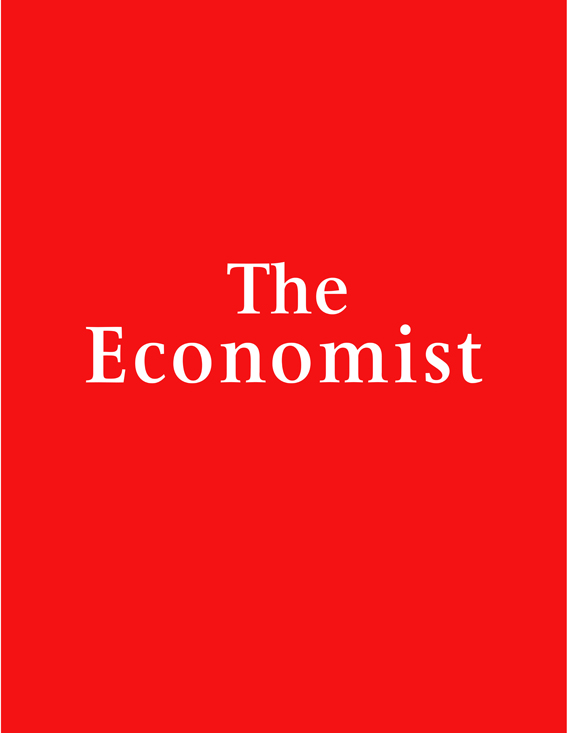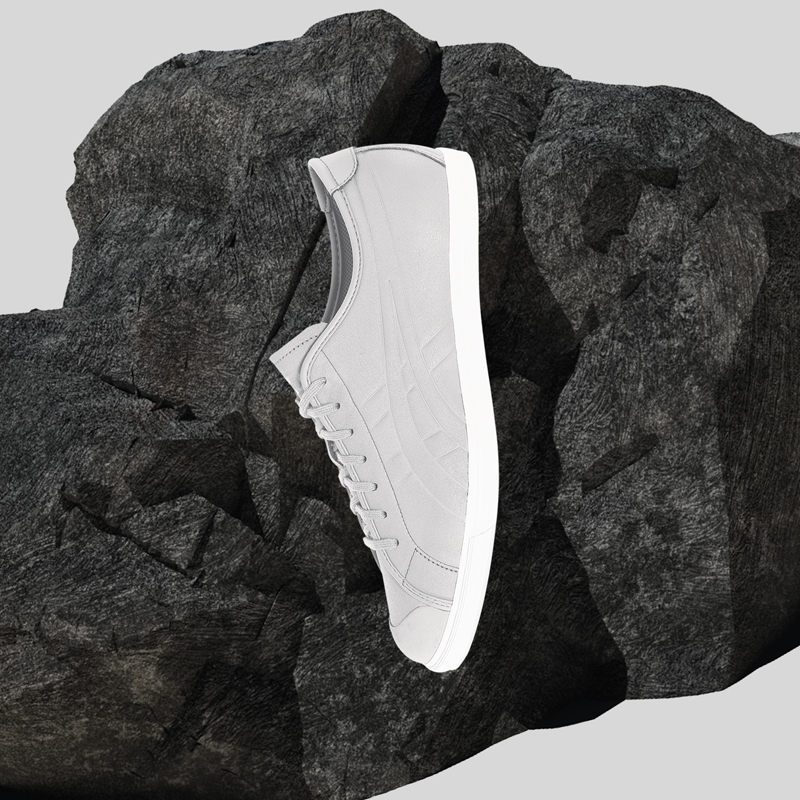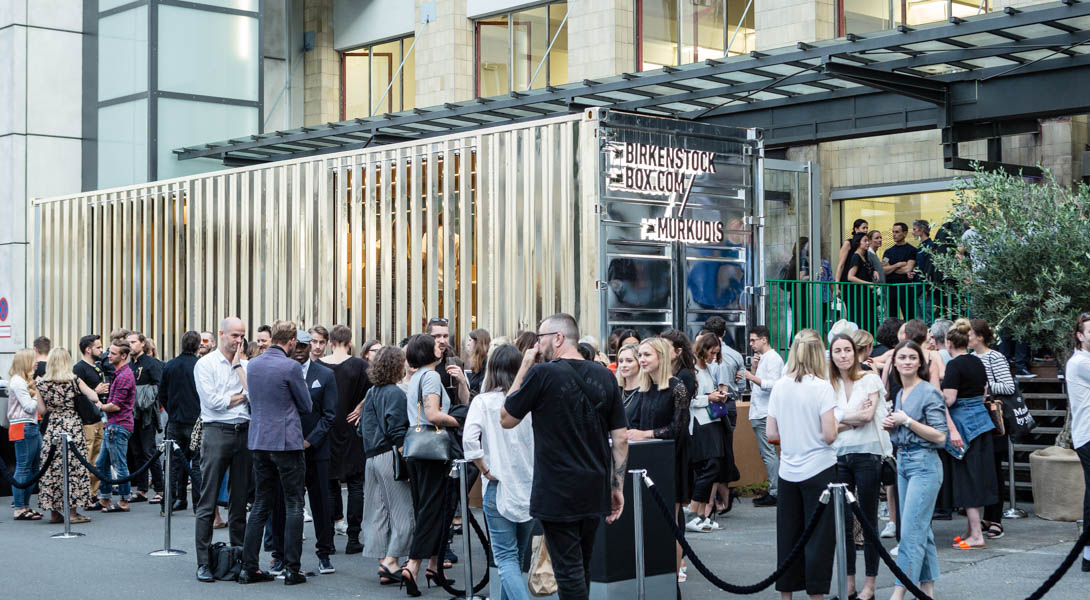A WALK IN HIS SHOES
A WALK IN HIS SHOES
PART 2
PART 2
DAVID KAHAN - CEO BIRKENSTOCK
With the recent launch of the Birkenstock collaboration with Rick Owens,
we sat down with the CEO of Birkenstock Americas to talk about the rise of Sneaker Culture,
authentically growing your brand, the future of retail, and his principles for leadership.
I
In
With the recent launch of the Birkenstock collaboration with Rick Owens,
we sit down with the CEO of Birkenstock Americas to talk about the rise of Sneaker Culture, authentically growing your brand, and his principles for leadership.
How do you keep the Birkenstock brand true to it's roots whilst staying relevant in such a rapidly changing world?
Hi David, welcome. Great to have you here today at A LINE. Tell us a little about your background? Where did you grow up, and how this has affected who you are today?
Number one is never, ever deviate from your DNA. You can go left, and you can go right, but never compromise your core.
Number two is you have to continously innovate. Because if you do the same thing over and over, people get tired. So you stay in your wheelhouse, but you innovate. That is key.
Number three is you have to always manage what I call relative market scarcity. It's economics 101. Never have more supply than demand.
And number four is never forget we're not in the footwear business. We're in the entertainment business. We're not in the shoe business, we're in show business. The stars of the shows just happen to be shoes.
We say to our partners, you better start to view what you do as being in the entertainment business or we're going to play in another sandbox. Because if you're boring the customers they're not gonna shop here anymore.
Broadly, people aren't shopping because they're not entertained by what they're seeing today. Malls have bored them, and the stores have bored them.
At some point there's gonna have to more content behind retail, and that's probably the next big iteration for brands. Wrapping the commerce part into the content. You're going to have to create content that your brand "lives in", sort of like Amazon is doing right now.
They aren't creating Amazon movie studios because they want to make money in the movie business. They want you to be ON Amazon, and that's where your movies are going to be, and where you're going to shop. They want your whole life to be integrated there, so they're going to create so much content that you can't get away from it.
It's the old Disney model. Disney didn't make a fortune by people sitting in movies. They made a fortune by everybody experiencing the brand and buying all the products. Until they commoditized princess movies, princess movies made no money. They they realized, "Oh my God, we got a mermaid. We can sell that."
And I think Amazon is smart enough to bide their time and wait until the next generation are fully indoctrinated. You’ll have all kinds of boxes coming to your front door. You're not going to know what's hit you!
I was born and raised in Brooklyn, before anybody would have used the term "hipster" in the same sentence as Brooklyn.
It was a gritty area. Very blue collar. And no matter how far you move from Brooklyn, you'll always be connected.
It's actually pretty incredible how many people in the entertainment & media business grew up in Brooklyn. I think there's just something when you grow up there that just drives you. You're kind of sharp.
Then you move away, and you realize that everyone isn't a little rough around the edges like that. You've got to tone yourself down a little bit sometimes.
"Going back to my point earlier about like v’s love, it's pretty easy to switch from a like, however it's not easy to switch from a love."
"And then New York Magazine ran an article on the Top 10 hottest pickup spots in New York City. It was Studio 54, The Cat Club, the Fountain at Central Park on a Saturday afternoon, and Macy's Athletic Club Thursday night athletic seminars."
How do you think brands continue to maintain their relevance as this “brandless world” starts to play out?
How do you think Brooklyn has changed over the last 30 years?
I think that's what keeps us up all night right now! Realizing these forces around us which are “anti-brand”.
The truth is this. I'm Timberland, and I sell a million pairs of Timberland boots on Amazon a year. Well Amazon is now my data aggregator. Amazon now has the data on a million people that have bought Timberland boots. So what's to stop them from making their own six-inch, wheat-colored boot that’s than sitting in your inbox the next day? Or what's to stop them from setting it up so any time you go on and search "work boots," "outdoor boots," "Timberland," the first thing that shows up is their own Amazon boot?
That's where the future is going, and that's why as a brand owner you have to manage your brand and your customer connections so that the consumer doesn't seek the lowest common denominator. And lowest common denominator is buyer beware, because you as the customer don't know what you're getting. It starts to become the wild west.
Going back to my point earlier about like v’s love, it's pretty easy to switch from a like, however it's not easy to switch from a love. The only reason you switch from a “love’ is if the brand you love does something that you don't agree with, or something that’s unlike their brand. You just lose that emotional connection.
And as long as brands keep entertaining and creating new experiences they’ll be OK. I’m opening a store in Soho in New York this year, and the biggest thing we're playing around with is how to make it a place of entertainment. We still have to do business. It has to be commercial. But most importantly we need to create a brand experience. It has to connect. And every brand has to unlock what that looks like for them, because the world doesn't need yet another shoe store, it really doesn't..
Birkenstock Box designed by Gonzalez Haase AAS. The mobile retail concept debuted at Andreas Murkudis during Berlin Fashion Week.
This marked the first stop for the traveling, ephemeral retail concept.
“It's actually pretty incredible how many people in the entertainment & media business grew up in Brooklyn. I think there's just something when you grow up there that just drives you. You're kind of sharp.”
LEADERSHIP
What do you think makes a great
business leader?
I think you have to inspire people, and you have to know when to get out of the way. You have to inspire people to do more than they thought they were capable of doing. I think that's very important.
I'm not a micromanager. I just believe in building great teams. It sounds like a cliche, but get the best people in the room and get out of the way. Sometimes people will come to me and say they want to run something by me just to get my buy in, and a lot of times I'll say “honestly, you're a better judge of this so don't waste your time”. Let me know about it, but I don't need to look at it in detail as you probably know the right answer.
I think the more you do that, the better you become as a general manager. And that's why you become a general manager, because eventually you don't want to be the one designing the product. But it's hard if your nature is to want to know everything.
“If you read those lyrics right now they are more relevant today they were in 1967. It's guys like that who inspire me more than anything. People that do things from a lasting stand point and stay true to themselves. And I think that's what brought me to this company."
Who are your personal cultural icons and influences, and how have they affected your professional life?
I'd say for me it's brands that stand for something bigger and more life changing than just producing a product.
In terms of cultural life, there are musicians playing right now that won’t exist in 20 years. But Bob Dylan wrote “The Times They Are A-Changin” 40 years ago, and If you read those lyrics right now they are more relevant today they were in 1964. It's guys like that who inspire me more than anything. People that do things from a lasting stand point and stay true to themselves. And I think that's what brought me to this company.
This brand has been around for 240 years, and this goes back to a cobbler in a small village in Germany whose last name just happened to be Birkenstock, and who had the idea of making comfortable shoes for people. That's something very real. So to me, it's people that are very real and stay true to who they are, whether it's the arts, or whether it's music. And I think it’s getting few and far between when it comes to business right now.
It wasn't until the emergence of hip hop, and urban culture, and bands like Run-D.M.C that things started to really change. I'm good friends with a gentleman named Angelo Anastasio, who back in the early 1980’s found Run-D.M.C when they were basically playing high school dances in the Bronx. He picked these guys and said, "I'm going to get them in Adidas."
They did the track “My Adidas”, and during their concerts everybody in the audience used to take off their shoes and hold them up in the air. They became very identifiable symbols of who you were, and what you were all about.
If you look at buying patterns through the years for the luxury market, there have always people that appreciated Chanel, Hermes, Yves St Laurent, and these were the same people who could buy a Mercedes-Benz, or a B.M.W. or a Porsche.
And you had these people who - and not to look down on them in any way - but Adidas was THEIR B.M.W. It was THEIR Mercedes. They were never going to own a Learjet. They were never going to have that “Fuck you I have a Range Rover” thing but they could have something that represented them and their tribe.
And you were dealing with iconic logo’s that you could see from a hundred feet away. You could see that swoosh. You could see those Three stripes. You could tell what it was.
So the formula became “sign an athlete or rapper, put him in a product, somehow get that product out there”. This was before social media. You had MTV and that was basically it. And this stuff sold out quickly, which led to the whole idea of product scarcity. We learned that the scarcer you made something, the more people wanted it.
And again, it's people that were never going to collect that rare bottle of wine, or run a B.M.W., or walk around with an Hermes Birkin bag. To them sneakers were the thing you had to have. If you were in New York, Los Angeles, Detroit, or Chicago, that was the uniform. It was a pair of athletic sneakers and a team jacket. And the bigger the logo the better.
But you're not going to see a guy walking down the street anymore with a giant swoosh on his shirt. That was before brands like Nike purposely and strategically toned things down once it started to get out of control

Kate Moss photographed wearing Birkenstocks for British magazine The Face, 1990.
“An artist creates something because they have a need to share that with the world. I don't think it get's any bigger than that, and I don't want to overly romanticize making shoes, but the truth is that's what we think about every day."
What's your favorite album, and why?
I guess once they started controlling how their brands were perceived, this was the beginning of traditional brand management for these companies.
How have you seen these approaches to manipulating and controlling brands shift and evolve?
It’s Darkness On The Edge of Town by Bruce Springsteen
I love it. Love it. To me that album is like life. You could even forget the music and just read those lyrics. It’s just as real as it gets. That was the first album I got where everything from the album cover to the music just freakin hit me. I could listen to that right now and still feel like I'm hearing it for the first time. That album means everything to me. Everything.
You remember where you were when you heard something for the first time, and how you felt. That's the beauty of it. That's why I think everything we do from a brand standpoint, we try to hold to that lens of emotional connection. Do you just like it, or do you love it? Are you really totally connected to it?
That's what a great musician does. A great musicians doesn't just get up and make music. They get you right here. And that's what great brand marketers do. They don't just “hook you up” with something. They genuinely have something they believe you need in your life for a very real reason.
An artist creates something because they have a need to share that with the world. I don't think it gets any bigger than that, and I don't want to overly romanticize making shoes, but the truth is that's what we think about every day.
"I feel it’s incredibly important for people to offer and take ownership of their ideas, and to be open and honest with their thoughts and feedback."
Those emotional connections you described, do you think they need to be grounded in the brands values and daily culture?
Social media has created a transparency which (I think..) has forced a shift towards marketing that needs to be more rooted in "authenticity”.
Do you agree, and is this true for you?
Every single person in my company, if you stop them on the street and ask what's our mission statement, they'll tell you “we sell footwear that brings people happiness and satisfaction”. It's that simple. We sell footwear that brings people happiness and satisfaction. If your personal mission statement has nothing to do with bringing people happiness and satisfaction, then you're inconsistent with the mission statement of this company.
We sell products that bring people happiness and satisfaction, so it's not “It's Friday. Hurry up and call the warehouse and get this shipped because we need to make a number this month”. That’s important, but not as important as people feeling “Oh my God, I have to ship this because there are people that want the happiness and satisfaction this product will deliver”. And I think there's a difference between the two.
This also expands the timeframe and stops people practicing short term thinking which enables you to ride the daily up's and down's. The failures are smaller, because there's always something bigger coming to iron those things out. It gives everyone the movement and motion to move past bad news and keep focused on where we are going...
And people need a positive culture and working environment. Birkenstock is probably 90% women, and that's been a change for me coming from the sports end of the business. That was a guy business, and I did not work with a lot of women through the years. But we're 90% women, and it's an incredibly flexible environment.
When I first got there one employee would ask me "Is it all right if I leave today at four o'clock as I'm going to hit traffic and my kid has a soccer game?" And after a while I was like, "Listen, you do whatever you want. Come and go as you want. You want to see your kid play soccer, go. But if it's Sunday night at ten o'clock and I text you, trust me it's really, really important because I wouldn't waste your time. You need to respond to me."
So they know that they have that kind of flexibility, and you get so much more from people. And it’s cool because it ties to the brand, and that's what brought me to this thing.
And I feel it’s incredibly important for people to offer up and take ownership of their ideas, and to be open and honest with their thoughts and feedback. I'm a few steps removed from whoever is doing cool things, so I may not know about them. And like everyone, I have bad ideas, so it’s important to have honest temperature checks from your team.
People can be afraid to offer feedback in certain situations, and that’s the last thing I want.
Every single person in my company, if you stop them on the street and ask what's the mission statement, they'll tell you “we sell footwear that brings people happiness and satisfaction”. It's that simple. We sell footwear that brings people happiness and satisfaction. If your personal mission statement has nothing to do with bringing people happiness and satisfaction, then you're inconsistent with the mission statement of the company.
We sell products that bring people happiness and satisfaction, so it's not about “it's Friday. Hurry up and call the warehouse and get this shipped because we need to make a number this month”. That’s important, but not as important as people feeling “oh my God I have to ship this because there are people that want the happiness and satisfaction by this product is going to deliver”. And I think there's a difference between the two.
It also expands the timeframe and stops you practicing short term I'm thinking, which in turn enables you to ride the day to day ups and downs. The failures are small because there's always something bigger to iron those things out. It gives everyone a movement and motion to move past bad news and keep focused on where we are going.
And people need a good environment. Birkenstock is probably 90% women, and that's been a change from me coming from the sports end of the business. It was a guy business, and I did not work with a lot of women through the years. But we're 90% women, and it's an incredibly flexible environment.
When I first got there one employee would ask me "Is it all right if I leave today at four o'clock as I'm going to hit traffic and my kid has a soccer game?" And after a while I was like, "Listen, you do whatever you want. Come and go as you want. You want to see your kid play soccer, go play soccer. But if it's Sunday night at ten o'clock and I text you, trust me it's really, really important because I wouldn't waste your time. You need to respond to me."
So they know that they have that kind of flexibility, and you get so much more from people. And it’s cool because it ties to the brand, and that's what brought me to this thing.
And I feel it’s incredibly important for people to offer and take ownership of their ideas, and to be open and honest with their thoughts and feedback. I'm a few steps removed from whoever is doing cool things, so I may not know about them. And like everyone I have bad ideas, so it’s important to have honest feedback and get checked by your team.
People can be afraid to offer feedback, but that’s the last thing I want.
What are some of the most important lessons you’ve learnt over the years?
What are some of the most important lessons you’ve learnt over the years?
This is kind of a weird one for me, because I have a lot of people in my life that I've brought with me here to Birkenstock. I’ve had the opportunity to almost create in my own image what I wanted a company to be like. But the experience I had a few years ago was getting fired from a company. And I'm proud to say that was probably the best thing that ever happened to me!
I did this CEO panel in New York a while ago, and they had a bunch of younger people in their 20's, and they had four or five CEOs of companies, and the opening question was "Can you talk about who was your greatest mentor?". The first guy goes "I worked for this person, and he taught me X," and the next person was, "I worked for this person who taught me Y”. And they get to me and I'm thinking, "Oh my god, I’ve worked for some of the meanest assholes to ever walk the face of the earth." So I said it. I said honestly, the best experience of my life was I worked for somebody who was a horrible human being who ended up firing me. That was best thing that ever happened to me, because I said I would never in a million years want my kids to grow up and be in an environment with somebody treating them that way. I'm proud to say I got fired!
I've had the unique opportunity to meet a lot of CEO's and Presidents of companies. You read about them in Fortune magazine, and then you meet some of them and you go “oh my God, this guy's the biggest idiot I've ever met. This guy's a moron!"

After 242 Years, Birkenstock Premieres at Paris Fashion Week.
Andreas Murkudis for Birkenstock, limited-edition collection.
If you could have done anything else with your life, what would it have been?
If you could have done anything else with your life, what would you have done?
I think I'm one of the people who is probably doing what every indicator possible would have led someone to think I should be doing. I mean, I'd love to be standing in front of 80,000 people in a stadium and playing the guitar, that'd be cool! Sometimes I think I'd like to be a talk show host. I've pitched this idea a few times. It hasn't got anywhere. People have thought I'm kind of crazy! But I like the idea of guys just kind of bantering about real subjects. I'd like to do that, but considering nobody's probably going to give me a half hour primetime TV, I'm probably doing what I should be.
.
Awesome David! That was great. Thanks so much for sharing your stories and passing along so many amazing insights. We can’t wait to see what you guys are coming out with this year.
Awesome David! That was great. Thanks so much for sharing your stories and passing along so many amazing insights. We can’t wait to see what you guys are coming out with this year.
Sure. You're welcome guys. That was fun! Thank you very much, and best of luck with A LINE.
We hope you enjoyed the first of The Culture Sessions series.
In The Culture Session No2, we're speaking to Dan Sawney from The Economist about the future of publishing.
If you're interested in hearing more, please subscribe to our Of Note newsletter below to receive notification as soon as the interview goes live.
S
We hope you enjoyed the first part of The Culture Sessions interview with David Kahan.
In Part 2 we’ll be looking at how the retail landscape is changing along with the secrets of effective leadership.
If you're interested in hearing more, please subscribe below to receive notification as soon as the article goes live.
Se
WORK - NEWS - INSIGHTS

Sony Electronics
Redefining an Icon
We've been lucky enough to have a long-standing relationship with Sony, partnering on everything from brand and marketing strategy to design support for individual product teams.
Projects have included global lifestyle & product photography, product campaigns, brand guidelines and retail experiences.

The Culture Sessions
Session No2 - Publishing
In the second of The Culture Session series we're speaking to Dan Sawney from The Economist. Dan will be sharing his perspective on the fundamental shifts facing the publishing industry, and how brands need to re-think customer enagagement in this fragmented
new world.

Asics Tiger
A Future Heritage
We worked with legendary Japanese sneaker brand Asics on a campaign to celebrate their anniversary. The concept focused on the juxtaposition of their future focused aesthetic and Japanese Heritage, showcasing the upcoming collection with contrasting raw materials, including ancient Japanese black rock and petrified bamboo.

The Luxury Marketing Council
Turning Insight Into Design
On March 21st we'll be speaking to members of The Luxury Marketing Council about turning data, trends and insights into effective strategy and design. In conjunction with Stephen Kraus, Chief of Insights at SimilarWeb, we’ll be exploring how data has changed the way marketing decisions are made, and how to translate the insights created into design that better connects brands and audiences.

